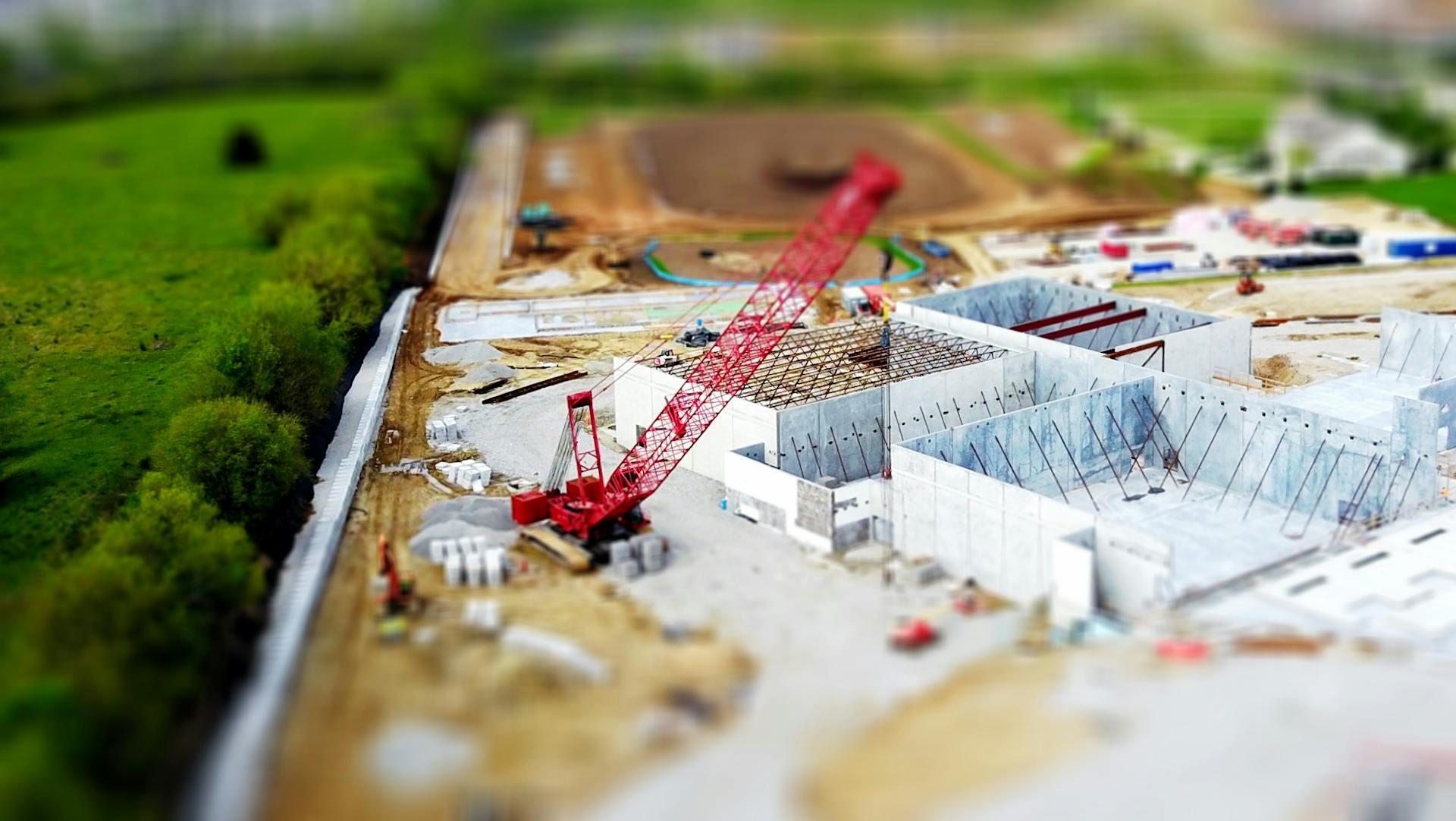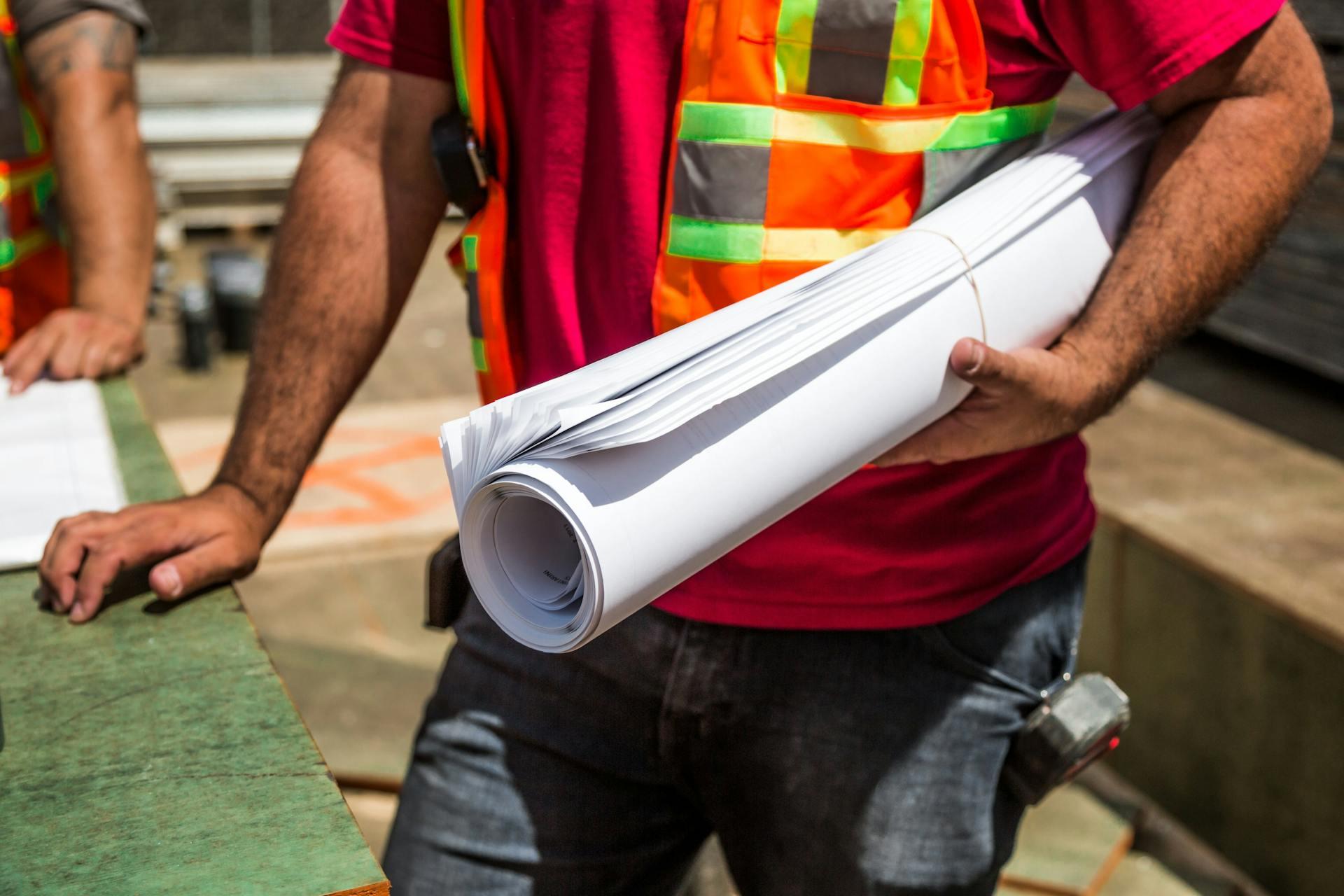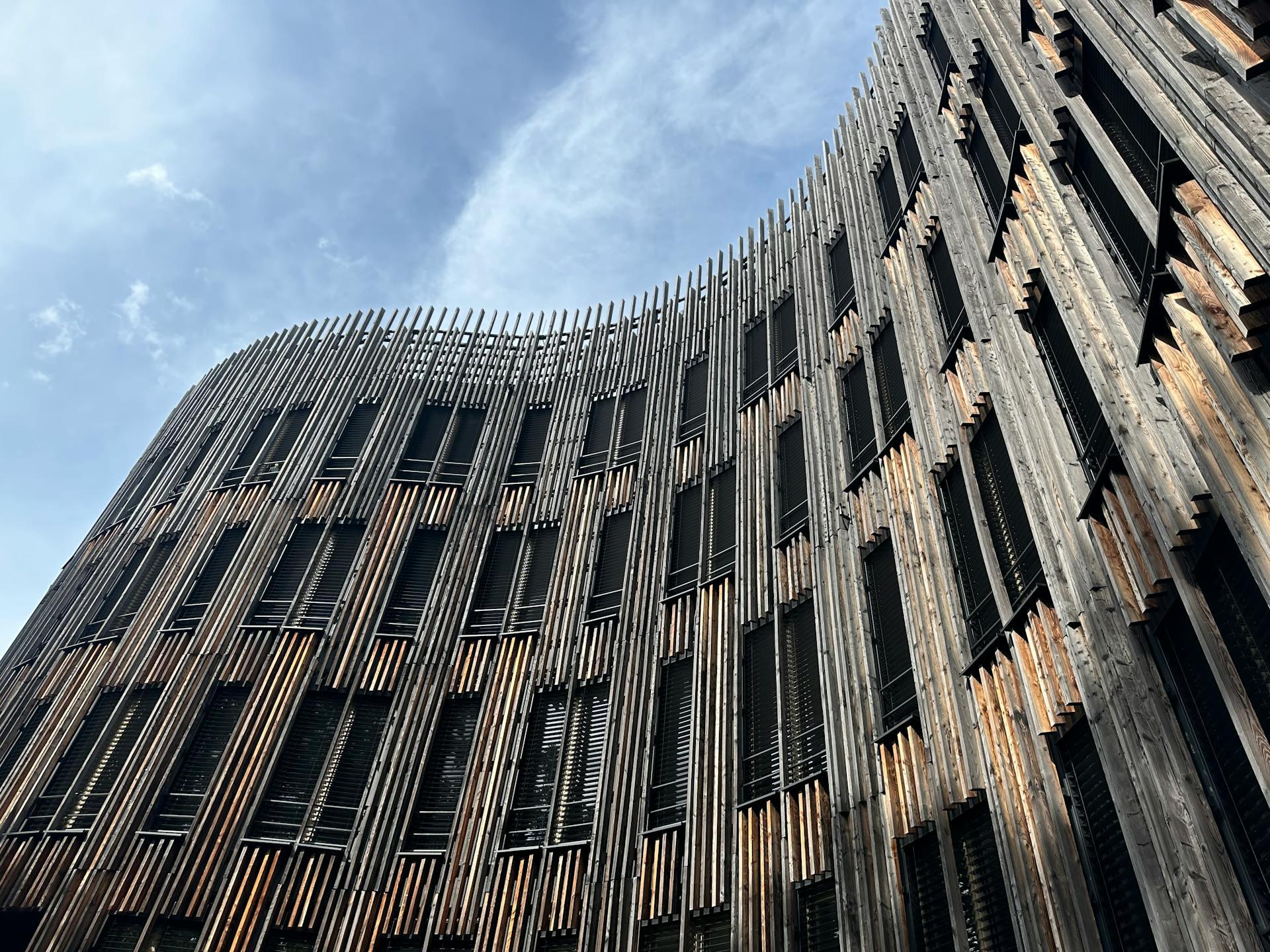Sustainable building trends have become more prevalent in Canada's construction industry. The LEED certification is a recognized international building standard you must master if you are an architect or a building professional interested in sustainable architecture in Canada. Our step-by-step guide discusses all the aspects of the LEED certification in Canada. Ready to get started and contribute to a greener future?

What is LEED certification?
LEED stands for Leadership in Energy and Environmental Design, an international building rating system developed by the U.S. Green Building Council (USGBC) and adapted for Canada by the Canada Green Building Council (CaGBC). LEED is a framework for designing, constructing, and operating sustainable, high-performance buildings that are healthy for the occupants and the environment.
LEED focuses on six key strategies:
Earning LEED accreditation can be valuable for building professionals in Canada, such as architects, engineers, and project managers. Obtaining the LEED demonstrates that architects and building professionals have the necessary expertise in sustainable buildings to work on high-profile LEED projects and other green initiatives, such as the net-zero buildings in Canada.

How to become LEED certified in Canada?
The LEED certification can be a valuable career credential for architecture professionals, students, project developers, homeowners, and interior designers. Discover the step-by-step process for obtaining LEED certification in Canada.
1. Training and proven experience
It is relevant to mention the two credentials you can find before discussing the requirements for LEED certification: the LEED Green Associate (LEED GA) and the LEED Accredited Professional (LEED AP) with a specialty.
The LEED Green Associate (LEED GA)
To be eligible to apply for the LEED Green Associate certification, you should provide proven LEED job experience or study a LEED project. This credential requires no education or experience in the field. Indeed, even with no architectural degree, you can still get the credentials with proper preparation.
LEED Accredited Professional (LEED AP) with a specialty
To become an accredited LEED professional, you must hold a relevant degree and work experience in the sustainable building industry.
2. Proper exam preparation
CaGBC offers LEED certification and training programs in both English and French in Canada to help candidates pass. The training programs include practice exams with updated theoretical questions, study guides, instruction, and registration tips.
3. Registration for the LEED
To register for the LEED certification exam or renew any related credentials, we recommend you visit the USGBC website and create an account. LEED candidates can select their preferred location, date, and time for the exam. Candidates can also take the exam at a Prometric test center or remotely online if they prefer online tests.
4. Test examination
The LEED is a 2-hour multiple choice exam that assesses the candidate's ability to understand and support green building practices and LEED principles. LEED strongly advises exam writers to be familiar with green building concepts in real-life scenarios, such as green roofing systems to promote vegetation. It may involve topics about the LEED process and objectives, location and transportation, sustainable sites, water efficiency systems, energy and atmosphere, materials and resources, and indoor environmental and project surroundings.
5. Maintenance of credentials
To maintain and renew the credential, all LEED professionals must complete hours of continuing education within two years, beginning from the date you earned your credential.
- LEED Green Associate must obtain and report 15 CE hours (3 of which must be LEED specific).
- LEED APs with a specialty must earn and report 30 CE hours (6 of which must be LEED-specific).
To earn continuing education hours, you can participate in educational courses, gain experience on LEED projects, and volunteer in green building and circular economy fields.
Key Resources for LEED Certification in Canada
Visit the Canada Green Building Council (CaGBC) website for more information on the certification process and the LEED certification guide.


Is it hard to be LEED certified?
Architects and related professionals can pass the certification with the proper preparation and resources. Below are some recommendations for obtaining LEED certification as a professional:
The LEED certification process will be more straightforward for architects and related professionals as they familiarize themselves with sustainable design. If this is not the case for you, you can find study resources, test preparation centers, and private tutorials to master the fundamental concepts for the exam. The Canada Green Building Council (CaGBC) provides a preparation course to aspiring LEED professionals.
Having theoretical fundamentals is good, but gaining hands-on experience on LEED projects is crucial. We recommend you gain experience in real LEED projects to meet the registration requirements and understand how its principles are applied in the real world. It would help if you looked for volunteer opportunities with local organizations or community initiatives focusing on green building or sustainability. Also, focus on working at architecture, design, or consulting firms with a strong track record of LEED-certified projects.
Maintaining LEED credentials requires an ongoing commitment to education and professional development. Architects must complete continuing education activities and stay current with best practices in sustainable construction. They must also stay current on the latest trends and get involved with professionals interested in green building or sustainability.
LEED certification demonstrates sustainable design proficiency, construction expertise, and knowledge of energy-efficiency housing standards. Architects with LEED credentials are often in demand for high-profile projects.
Exam Pass Rates
As of 2024, exact pass rates for LEED exams in Canada are not publicly disclosed. However, recent data suggest that the overall pass rate for getting the LED certification is around 65%. However, this can vary depending on the level of preparation, relevant professional LEED experience, and familiarity with the exam content.
LEED Certification Exam Preparation Tips
1. Study the LEED Reference Guides thoroughly.
2. Practice with training tests to familiarize yourself with the exam format.
3. Consider taking a LEED exam prep course CaGBC or other accredited providers offer.

Who should become LEED certified?
LEED certification is valuable to many professionals in Canada's construction industry. With the rise of green and industry-related jobs requiring knowledge of green strategies, companies search for qualified personnel proficient in current sustainability methodology and sustainable building materials knowledge. Professionals who should obtain LEED certification include:
- Architects: LEED architects are equipped to create aesthetically appealing, functional, and environmentally responsible structures. By incorporating principles of energy efficiency, water use optimization, and sustainable materials selection, LEED-certified architects can contribute to a more sustainable environment.
- Engineers: Engineers are crucial for building and operating systems that work well and suit the environment. Engineers can design optimized energy and water systems with a solid understanding of LEED principles. They can also acquire the knowledge necessary to implement renewable energy systems, select better materials, and employ techniques that minimize environmental impact.
- Interior designers: LEED-experienced interior designers can create attractive and harmonious interior environments that are also eco-efficient. These professionals can improve indoor air quality and well-being by selecting low-emitting materials, incorporating natural lighting, and designing effective ventilation systems. In addition, they can help pick furniture and materials that are good for the environment.
- Real estate professionals: LEED-certified buildings stand out for superior performance in an increasingly competitive market. By highlighting features such as energy efficiency, improved indoor air quality, and electricity savings, LEED real estate professionals can attract environmentally conscious buyers, positioning green real estate as an attractive option for new generations.
- Urban planners: LEED-experienced urban planners are trained to design communities prioritizing pedestrian connectivity, public transportation access, green areas, and resource efficiency. These professionals can contribute to responsible urban planning by considering green infrastructure and habitat preservation.
Benefits of LEED Certification for Professionals
How much does a LEED Consultant earn in Canada?
LEED consultants in Canada can expect competitive salaries and excellent job opportunities. Salary expectations will vary based on experience, location, specific role, and credentials. As of 2024, here's an overview of potential salary ranges:
- Entry-level positions: CAD 45,000 - CAD 65,000 per year.
- Mid-Level positions: CAD 65,000 - CAD 90,000 per year.
- Experienced LEED AP specialties: CAD 90,000 - CAD 120,000 annually.
It's important to note that these salary expectations can change based on market conditions and individual circumstances. Many LEED consultants also work as architects or engineers, which can affect their overall compensation package.
How to prepare for the LEED certification in Canada?
LED-specialized building instructors can significantly help architects or students seeking this sustainable accreditation in Canada. A private instructor will provide a 100% tailored curriculum and guide you through sustainable practices and local environmental regulations. Plus, LEED private instruction can be an excellent opportunity to learn tips for applying LEED principles in architectural projects, passing the certification exam, and immersing yourself in these fascinating green practices in Canada.
Ready to take the next step in your LEED certification journey? Your path to becoming a leader in sustainable building practices in Canada starts with Superprof private tutoring. Find everything you are looking for in just one click.
Wrap up!
LEED certification is a career-boost opportunity for architects and other building professionals to contribute to a sustainable Canada. Whether just getting started or advancing your LEED certification, stay informed about the latest LEED standards updates and ongoing networking with Canada's active green building community.

Summarize with AI:
















